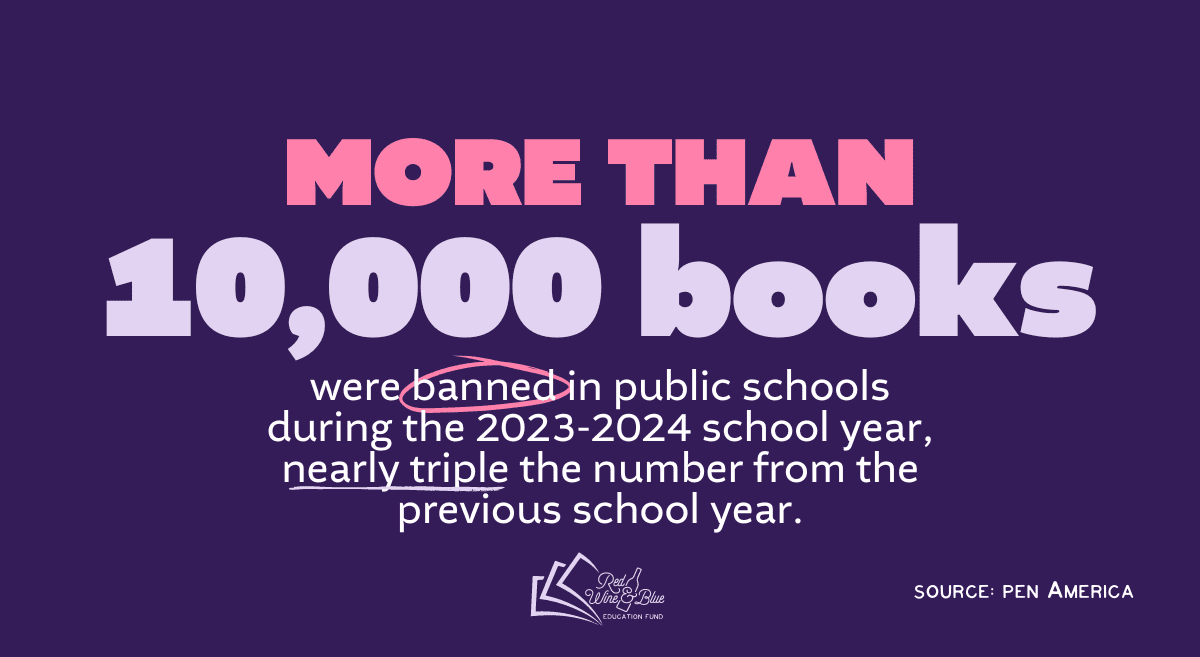
It’s Banned Books Week! Since 1982, this annual event supports our freedom to read and brings attention to the growing movement to ban books. So, let’s talk about the increase in book bans and why it’s so important for us to push back.
Book bans have been around for centuries. They started when governments and religious institutions wanted to censor what they saw as threats to their authority or moral standing. We’re now seeing everyday citizens challenge our access to books in schools and public libraries, and those bans are increasing rapidly.
These modern book bans are defined as when, for any period of time, a student’s access to a book is restricted or completely prohibited. PEN America has been tracking the increase in book bans since 2021. Their latest research found that there were more than 10,000 instances of book bans in the 2023-2024 school year, which is almost triple the number in the previous year!
These recent book bans are being driven by extremist groups like Moms for Liberty. They are targeting what they consider to be controversial or objectionable content, which is usually books with LGBTQ+ or non-white characters, histories of minorities, religious or political viewpoints different from their own, or sex education. “Controversial” and “objectionable” to them is really just code for ideas and viewpoints they don’t like or don’t understand, and often involves marginalized communities. When extremists are successful in getting these stories and narratives banned, they are unjustly erasing the voices and representation of entire groups of people. That erasure has very real consequences for all children.
Book bans narrow our children’s worldview by taking away their exposure to stories about other people and places. It keeps them from exploring ideas and perspectives that are different from their own, which hinders their ability to build empathy. Book bans also teach them that it’s ok to hate and censor things you don’t agree with.
For kids in the communities whose stories are being banned, it hurts even more. When kids don’t see themselves represented, they think their stories are not worthy of being told. And when they see them banned, they think their stories are shameful. All kids deserve to see themselves and relatable characters in stories to know that they are valued and are not alone.
There’s also a financial cost to all these book bans. When books are challenged, most school districts and public libraries have a process in place to review the books and rule on the challenges. That takes extra staffing and personnel hours. For example, last year in Texas, Virginia, and Pennsylvania, school districts reported spending between $30,000-$100,000 and hundreds of full-time staff hours reviewing book ban attempts! There are better ways for this taxpayer money to be spent and for these professionals to spend their time.
All this harm is being caused by a loud but small group of people. The majority of us — more than 80% — don’t want book bans, so we also have to be loud and push back. Over the next few weeks, we’ll explore how to put a stop to this increasing trend of book bans before it gets any worse.

